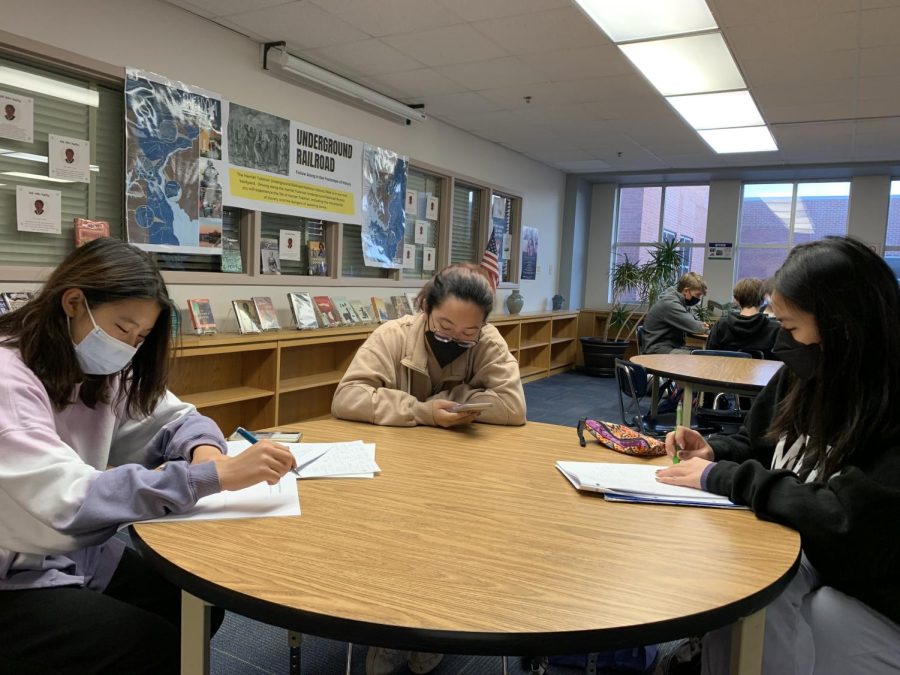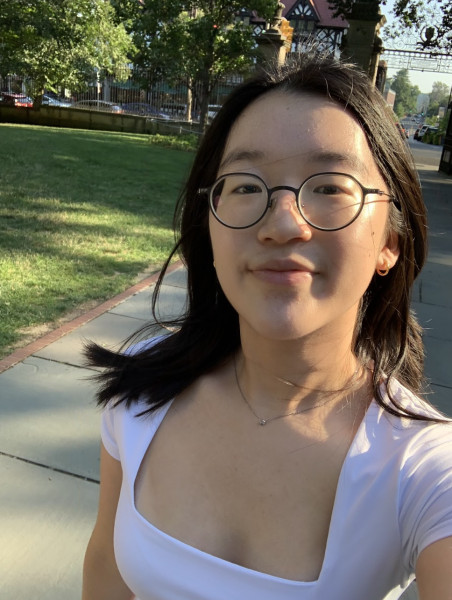WCHS underclassmen prepare for looming AP tests
As May approaches, students are beginning to organize their study plans for the upcoming AP exams. For freshmen and sophomores, this stretch can become overwhelming and exhausting.
March 9, 2022
As the calendar flips closer and closer to May, many students are beginning to make their study plans for the upcoming AP exams. In comparison to the relative experience of the juniors and seniors, this is the first year of in-person AP courses for sophomores and the first year of any AP courses for freshmen. Consequently, feeling overwhelmed and underprepared is becoming increasingly common among worried underclassmen.
Sophomores, who took both the courses and their corresponding exams virtually last year, have had to readjust to the changes in-person learning has brought. Virtual learning, which was marked by unlimited retakes on assessments, academic dishonesty and discontinuities in-class time, was detrimental to the study habits of students in many cases; this led to problems, especially at first.
“They [usually get] lost a lot at the beginning of the school year, but the most glaring difference [this year], academically, was their “brain stamina,” Jonathan Lee, an AP Physics teacher at WCHS, said. “Many students would simply be drained by the time it was fourth period, and then their attention span was gone.”
Although these problems are still present, most sophomores have overall found AP classes taught in-person to be much more effective. Different distinctly in-person learning opportunities, such as labs and group projects, have allowed students to comprehend the material in a more in-depth manner than virtual classes allowed. These have also affected the specific studying strategies students are utilizing.
“In-person learning has improved continuity of learning a lot for me and made studying for AP exams feel much less overwhelming,” WCHS sophomore Pavani Durbhakula said. “I began taking detailed notes in my AP classes at the beginning of the year. I tried on-paper notes as an experiment, but I like it much better so this is definitely a new strategy I will maintain.”
Freshmen, for whom this year is their first for APs, can also find themselves struggling under what can quickly become a daunting amount of work. Especially for the most common freshman AP, AP U.S. History (APUSH), which stresses the writing portion, students are realizing that they need to begin focused studying in preparation.
“I’m stressed about everything, especially because this is my first time; my grade, passing the exam, remembering details, understanding the information, and writing,” WCHS freshman Evelyn Shi said. “I am a dedicated American Yawp reader, and I have also been using homemade unit flashcards, Khan Academy practices, past AP exam responses, and APUSH-based YouTube channels like Heimler’s History. I am trying my best to try everything.”
The University of St. Augustine’s report on research-based study techniques included the SQ3R (Survey, Question, Read, Recite, Review) method for reading comprehension, space repetition or spreading learning across increasing intervals, and the Feynman technique, which is to explain the concept as plainly and simply as possible. However, there are also many other effective skills beyond these.
“I’ve also begun familiarizing myself with the format of the test through practice multiple choice and free response questions as I go, which is helping me to pace myself better than I did last year,” Durbhakula said. “I’m definitely planning to maintain usage of flashcards and review books, but I’m hoping to create a more defined study schedule and stick with it to avoid last-minute cramming.”
As the countdown to AP testing begins, it is time to begin organizing the revision calendars, making the flashcards and start using the highlighters and red pens. As the underclassmen experiment with different study techniques to find out which ones work best for them, their AP teachers are working to give them as much guidance as possible.
“Start soon—[the exams] are not far away,” Lee said. “And, form study groups. I can’t stress enough how important it is to not suffer alone.”



